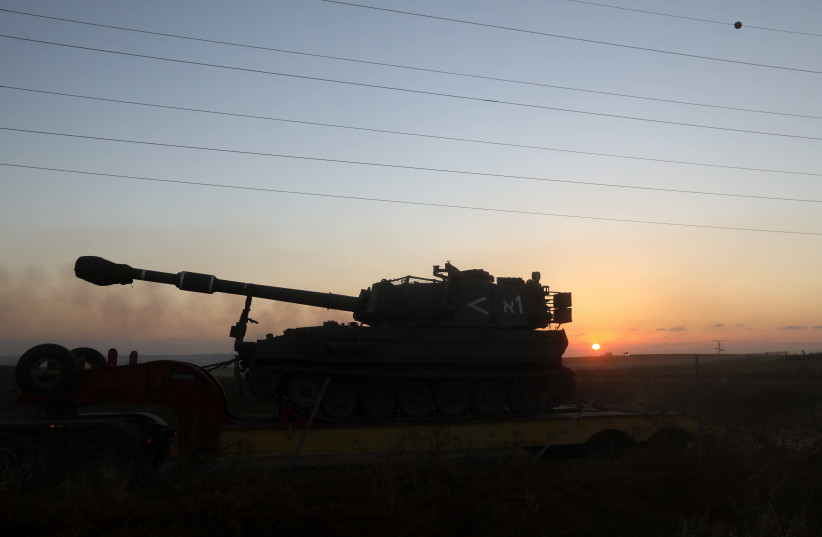The Israel Defense Forces have set up teams to track and learn from the Russian invasion of Ukraine, The Jerusalem Post has learned.
According to Walla News, the teams will gather information and intelligence for the Israeli military in the fields of combat methods and doctrine, ground maneuvers, logistics, air defense, anti-tank, cyber and electronic warfare, psychological warfare and more.
As the war in Ukraine enters its second week, thousands of videos are being posted on social media, making it possible for the Israeli military to gather mounds of critical intelligence that could help troops in future wars.
The IDF is undoubtedly looking at the chaos surrounding issues with logistics that have forced a 40-mile long convoy to stall outside of the capital of Kyiv. According to a US defense official, the convoy has made little headway toward the city since Monday because some elements “are literally out of gas” and troops have run out of food.
The Israeli military faced logistics problems during several wars, including during the Second Lebanon War in 2006, when the military had difficulty getting supplies to troops on the ground. During the 2012 Operation Pillar of Defense against terrorist groups in the Gaza Strip, reservists and troops complained of food shortages.

The IDF will also be looking at how Russian troops maneuver their tanks and heavy armored vehicles and face Ukrainians who have taken up arms to repel invading forces.
No Israel tank has maneuvered into dense urban areas since the Second Lebanon War
in Lebanon and the 2014 Gaza War, the IDF knows that in any future combat scenario, troops will have to maneuver deep into enemy territory and face guerrilla and urban tactics.
Though the IDF has been investing in precision munitions that can be fired from standoff ranges in order to reduce the risk to ground forces, tanks and armored fighting vehicles remain a central aspect of any battle in which the IDF engages.
The Ukrainian response to Russian tanks – which currently is mostly anti-tank weapon systems like the Javelin and NLAW – will also be studied by Israel. Israel watched closely as Russia tested various platforms in Syria and is watching even closer to see if they can take on the Western arms provided to Ukraine.
Though heavily outnumbered by Russia, the Ukrainians have been able to hold out thus far and inflict severe damage to the forces of the nuclear superpower.
The threats by Russian President Vladimir Putin to use his nuclear weapons will also likely be studied by the Israeli military as well, especially to see how the West responds to such threats. Israel is trying to stop Iran’s nuclear program in order never to find itself in a situation where it is threatened by Iranian nuclear bombs. But should it happen, Israel would like to have the support of the West to prevent Tehran from using them.
While the war in Europe is far different from a war that Israel would face in the future, the IDF is a military that praises itself for its in-depth investigations and its ability to incorporate battlefield lessons.
Israel’s military is watching closely and learning from Ukraine’s war.
